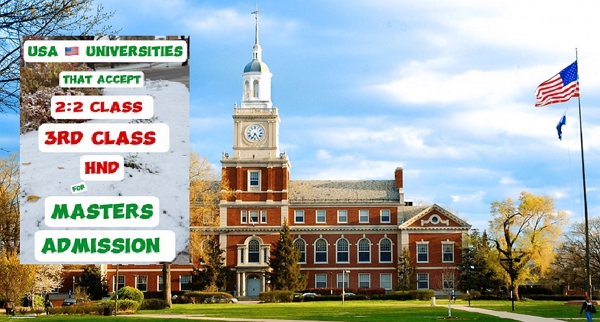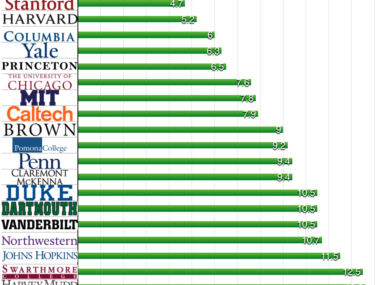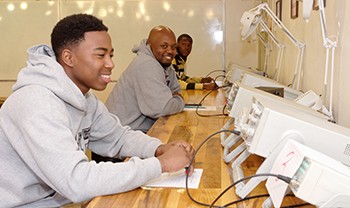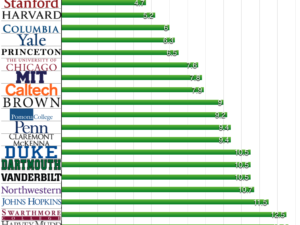Studying in the United States is a dream for many international students, but the cost can often be a barrier. From tuition fees to living expenses, the financial burden of studying abroad can be overwhelming. However, there are cheaper ways to study in the U.S. without the need for an agent. By following the right steps and utilizing available resources, you can minimize costs and secure an education in the U.S. without breaking the bank. In this article, we’ll outline some of the cheapest ways to study in the U.S. for global students and provide practical tips on applying directly without agents.
1. Choose Affordable Universities and Colleges
The first step in reducing the cost of studying in the U.S. is to select affordable universities and colleges. While prestigious Ivy League schools are often the most popular choice, they also come with hefty tuition fees. Instead, consider universities that offer low tuition rates but still provide quality education. Many public universities and community colleges are more affordable, and they offer excellent programs for international students. Check out Skoolville for list of cheap schools.
Tip:
- Community Colleges are a great option for students who want to start their studies in the U.S. with a two-year associate degree before transferring to a four-year university. These institutions have significantly lower tuition fees and allow students to save money while completing general education requirements.
Affordable State Universities:
- University of California, Berkeley – Offers a lower in-state tuition for residents and provides high-quality education.
- University of North Carolina at Chapel Hill – Known for its great value and quality programs for international students.
- University of Texas at Austin – One of the best public universities with lower tuition fees compared to private universities.
2. Apply for Scholarships and Financial Aid
One of the best ways to reduce the overall cost of studying in the U.S. is by applying for scholarships and financial aid. Many U.S. universities offer merit-based and need-based scholarships to international students. You can also find external scholarships through organizations, private institutions, and government programs.
Tip:
- Research Scholarships Early: Websites like Scholarships.com, Fastweb, and International Scholarships offer databases of available scholarships for international students. Be sure to check the specific university websites as well for school-specific opportunities.
Types of Scholarships to Look For:
- Merit-Based Scholarships: Awarded for academic excellence or talent in specific areas.
- Need-Based Financial Aid: Provided for students who can demonstrate financial need.
- Government and NGO Scholarships: Offered by foreign governments or international organizations.
Top 10 Universities in the US that Accepts 2.2 Third class and HND for Masters Program- Study in USA
3. Opt for Student Housing and Affordable Living Arrangements
While tuition is a significant cost, housing is another major expense for international students in the U.S. Living off-campus can be a cheaper option compared to on-campus housing, but it requires careful planning.
Tip:
- Student Housing: Many universities offer student housing options at a lower cost than private rentals. Additionally, living with a roommate or in shared accommodation can significantly reduce rent and utility expenses.
- Off-Campus Housing: If you choose to live off-campus, look for shared apartments or houses, as they often provide more affordable living options.
Living on a Budget:
- Cook your own meals to save money on food. Many students spend a considerable amount on dining out, but cooking can help lower daily expenses.
- Use public transportation to get around instead of relying on taxis or ride-sharing services.
4. Apply Directly to Universities – Skip the Agents
Using an agent may seem like an easy way to navigate the complex application process, but it can add unnecessary costs. Applying directly to universities allows you to save money and take control of your application process. Many universities offer online application systems that are easy to navigate and provide step-by-step instructions.
Tip:
- Research Schools Thoroughly: Use resources like University websites, College Board, and U.S. News & World Report to research universities and their programs. These platforms provide comprehensive details on application procedures, deadlines, and program specifics.
- Submit Application on Time: Make sure to submit all required documents such as academic transcripts, standardized test scores (if required), and recommendation letters by the application deadline.
5. Work-Study Programs and Internships
International students on an F1 visa are eligible to work part-time (up to 20 hours per week) during their studies. Many U.S. universities offer work-study programs that allow students to earn money while gaining experience. You can also explore internship opportunities, which may offer stipends or hourly pay, making it easier to offset living expenses.
Tip:
- On-Campus Jobs: Apply for on-campus jobs such as library assistant, lab technician, or research assistant. These positions are often flexible and provide a good way to earn extra income while studying.
- Internships: Look for internship opportunities in your field of study that offer stipends or hourly pay. Internships can also help build your resume and improve your career prospects after graduation.
6. Use Online Resources for Study Materials
Textbooks and study materials can be expensive in the U.S., but there are ways to save money. Consider using online resources or second-hand books to reduce costs.
Tip:
- Use websites like Chegg, Amazon, or BookFinder to find affordable used textbooks. You can also rent textbooks for a fraction of the purchase price.
Conclusion
Studying in the U.S. doesn’t have to be an expensive endeavor. By choosing affordable universities, applying for scholarships, opting for student housing, and using online resources, you can make your dream of studying in the U.S. a reality without relying on agents. The key is to plan ahead, do thorough research, and take advantage of all the resources available to you. With the right strategy and determination, you can minimize the costs of your education and make your study abroad experience more affordable.







